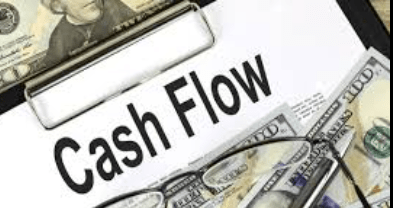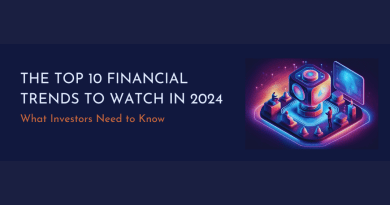Mastering Money Management: Strategies for Financial Success
What Is Cash Management?
Mastering Money Management. Money administration alludes to the handling of budgeting, sparing, contributing, investing, or something else directing the capital utilization of a person or bunch. The objective of cash administration is to maximize the esteem of cash, guarantee budgetary soundness, and meet budgetary objectives. Here are the key components of cash management:

1. Budgeting
Mastering Money Management. Creating a budget includes posting all sources of salary and following all costs to guarantee that investing does not surpass profit. This makes a difference in recognizing ranges where cash can be spared and in arranging for future expenses.
2. Saving
Setting aside a parcel of pay for future utilization or crises. Investment funds can be held in different shapes such as investment funds accounts, settled stores, or cash showcase accounts. The objective is to have a budgetary pad for unforeseen occasions or arranged future expenditures.
3. Investing
Allocating cash into resources like stocks, bonds, genuine domain, or common stores with the desire of producing returns over time. Speculation techniques shift based on hazard resilience, time skyline, and money-related goals.
4. Obligation Management
Managing and paying off obligations such as credit cards, credits, and contracts. This incorporates understanding intrigued rates, and reimbursement plans, and prioritizing high-interest obligations to minimize by and large monetary burden.
5. Budgetary Planning
Setting short-term and long-term budgetary objectives and making arrangements to accomplish them. This includes evaluating current budgetary status, assessing future needs, and creating procedures to meet those needs, such as retirement arranging or financing education.
6. Chance Management
Identifying and moderating monetary dangers through protections (wellbeing, life, property) and expansion of speculations to secure against potential losses.
7. Cost Tracking
Monitoring and categorizing day-by-day costs to pick up experiences into investing propensities and to recognize ranges where one can cut costs or alter investing behavior.
8. Assess Planning
Understanding charge commitments and utilizing tax-saving openings to decrease the sum of charges paid. This incorporates taking advantage of assessment conclusions, credits, and retirement account contributions.
9. Budgetary Education
Continually learning about individual back, speculation choices, and cash administration techniques to make educated monetary choices. This can incorporate perusing books, going to workshops, or looking for counsel from budgetary advisors.
Benefits of Compelling Cash Management
– Monetary Steadiness: Diminishes money-related stretch and increments the capacity to handle emergencies.
– Objective Accomplishment: Encourages the realization of budgetary objectives such as buying a domestic, subsidizing instruction, or resigning comfortably.
– Expanded Riches: Appropriate administration leads to way better speculation choices and expanded reserve funds, coming about in riches aggregation over time.
– Obligation Lessening: Makes a difference in overseeing and diminishing obligation, hence liberating up more assets for reserve funds and investments.
In outline, cash administration is a comprehensive approach to taking care of one’s accounts that includes arranging, controlling, and optimizing the utilization of cash to accomplish monetary well-being and goals.

Understanding Cash Management
Understanding cash administration is fundamental for accomplishing monetary steadiness and coming to individual money-related objectives. Here’s a breakdown of the key components included in viable cash management:
1. Budgeting
Budgeting is the establishment of cash administration. It involves:
– Following Pay and Costs: Knowing how much cash is coming in and going out each month.
– Distributing Reserves: Assigning parcels of salary to different categories such as lodging, nourishment, transportation, and entertainment.
– Setting Limits: Setting up investing limits to guarantee costs do not surpass income.
2. Saving
Saving is vital for money-related security. It includes:
– Crisis Support: Setting aside cash for startling costs like therapeutic crises or car repairs.
– Long-Term Reserve funds: Sparing for future needs such as retirement, buying a domestic, or children’s education.
– Short-Term Reserve funds: Arranging for near-term objectives like getaways or major purchases.
3. Investing
Investing makes a difference develop riches over time. Key focuses include:
– Sorts of Ventures: Stocks, bonds, genuine bequest, shared reserves, and retirement accounts.
– Hazard and Return: Understanding the adjustment between potential returns and the dangers involved.
– Broadening: Spreading speculations over distinctive resource classes to decrease risk.
4. Obligation Management
Managing obligation viably anticipates budgetary strain. Techniques include:
– Understanding Obligation: Knowing the terms and intrigued rates of advances and credit cards.
– Prioritizing Installments: Paying off high-interest obligations to begin with to minimize intrigued costs.
– Maintaining a strategic distance from Overabundance Obligation: Borrowing inside one’s implies and dodging superfluous debt.
5. Budgetary Planning
Creating a monetary arrangement involves:
– Setting Objectives: Characterizing short-term and long-term money-related objectives.
– Evaluating Current Circumstances: Assessing current money-related status by counting resources, liabilities, wages, and expenses.
– Creating a Methodology: Making a guide to accomplish monetary objectives, which may incorporate sparing, contributing, and budgeting tactics
6. Chance Management
Protecting against monetary misfortune involves:
– Protections: Wellbeing, life, property, and other protections to moderate potential money-related risks.
– Crisis Finance: As specified, crisis finance is a key component of change management.
7. Cost Tracking
Keeping track of costs makes a difference in:
– Distinguishing Investing Designs: Understanding where cash is going.
– Cutting Pointless Costs: Finding ranges to diminish spending.
– Altering Propensities: Changing investing behavior to adjust with money-related goals.
8. Charge Planning
Effective charge arranging diminishes assessment liabilities. It involves:
– Understanding Assess Commitments: Knowing how much charge is owed and when.
– Maximizing Derivations and Credits: Utilizing accessible charge benefits to lower assessable income.
– Vital Arranging: Timing pay and costs to optimize and assess outcomes.
9. Budgetary Education
Continuous learning is critical for making educated choices. This includes:
– Perusing and Inquiring about Remaining educated about money-related news, patterns, and strategies.
– Looking for Counsel: Counseling money-related advisors or specialists when necessary.

Benefits of Cash Management
– Money-related Solidness: Diminishes push and increments the capacity to handle startling expenses.
– Objective Accomplishment: Makes a difference in coming to monetary points of reference such as buying a house or sparing for retirement.
– Riches Collection: Compelling administration leads to investment funds development and venture returns.
– Obligation Diminishment: Legitimately overseeing and decreasing obligation liberates up assets for other budgetary goals.
In conclusion, understanding and actualizing successful cash administration hones are significant for keeping up money-related well-being, accomplishing individual budgetary objectives, and guaranteeing long-term monetary security.
Top Money Managers by Assets
Top cash directors by resources beneath administration (AUM) are taught that handle tremendous entireties of capital, regularly for the sake of clients, counting people, organizations, and governments. These firms oversee an assortment of speculation items, counting shared reserves, ETFs, benefits reserves, and private value stores. Here are a few of the best cash directors by AUM:
1. BlackRock
– AUM: Over $9 trillion
– Diagram: BlackRock is the world’s biggest resource director, giving a wide run of venture and innovation administrations. It is known for its iShares ETF run and a solid nearness in the fixed-income market.
2. Vanguard Group
– AUM: Over $7 trillion
– Outline: Vanguard is eminent for its low-cost list stores and ETFs. It works on a one-of-a-kind client-owned structure, meaning the financial specialists in its stores possess the company.
3. Devotion Investments
– AUM: Over $4 trillion
– Diagram: Constancy offers a wide cluster of speculation administration administrations, counting shared reserves, ETFs, retirement administrations, and riches management.
4. State Road Worldwide Advisors (SSGA)
– AUM: Over $4 trillion
– Outline: SSGA is known for overseeing the SPDR ETF family and is one of the biggest resource directors universally, giving venture procedures over different resource classes.
5. J.P. Morgan Resource Management
– AUM: Over $2.5 trillion
– Diagram: A division of JPMorgan Chase, this firm offers a wide run of speculation administrations, counting shared reserves, retirement arranging, and elective investments.
6. BNY Mellon Venture Management
– AUM: Over $2 trillion
– Diagram: Portion of the Bank of Modern York Mellon, this firm gives venture administration and riches administration administrations through a multi-boutique model.
7. Capital Group
– AUM: Over $2 trillion
– Outline: Known for its American Stores family, Capital Gather offers effectively overseen common stores and a run of venture solutions.
8. PIMCO (Pacific Venture Administration Company)
– AUM: Over $2 trillion
– Diagram: Specializing in settled wage, PIMCO is one of the biggest bond supervisors in the world, giving a run of speculation techniques and products.
9. Amundi
– AUM: Over $1.9 trillion
– Outline: As Europe’s biggest resource supervisor, Amundi offers comprehensive venture arrangements over all major resource classes and regions.
10. Allianz Worldwide Investors
– AUM: Over $1 trillion
– Outline: Portion of the Allianz Bunch, this firm gives dynamic resource administration over a wide run of value, settled wage, and elective speculation strategies.
These firms oversee considerable resources by leveraging broad inquiries about, different venture techniques, and progressed innovation to meet the speculation needs of their clients. They play a basic part in worldwide monetary markets, impacting patterns and giving liquidity.
What is the difference between a Cash Director and a Resource Supervisor?
A cash supervisor and a resource supervisor are regularly utilized and traded, but there is an unobtrusive difference:
– Cash Director: Ordinarily alludes to people or firms that oversee personal client portfolios, centering on individual budgetary objectives and venture strategies.
– Resource Supervisor: By and large alludes to firms that oversee large-scale speculations for the sake of an assortment of clients, counting people, and organizations, and teaching, regularly utilizing pooled venture vehicles like common stores and ETFs.
In quintessence, a cash supervisor is more client-specific, whereas a resource director handles broader, large-scale speculation administration.
What are the primary standards of cash management?
The fundamental standards of cash administration are:
1. Budgeting: Making and following a budget to control investing and guarantee that costs do not surpass income.
2. Sparing: Setting aside a parcel of wage for crises and future goals.
3. Contributing: Apportioning reserves into different resources to develop riches over time.
4. Obligation Administration: Overseeing and lessening obligations to dodge budgetary strain.
5. Chance Administration: Ensuring against monetary misfortunes through protection and diversification.
6. Cost Following: Checking and altering investing to remain inside budget and recognize investment funds opportunities.
7. Money-related Arranging: Setting monetary objectives and creating a procedure to accomplish them.
8. Assess Arranging: Optimizing charge liabilities through conclusions, credits, and vital planning.

What is the objective of cash management?
The objective of cash administration is to maximize the esteem of one’s budgetary assets, guarantee budgetary soundness, and accomplish both short-term and long-term monetary objectives. This includes viably budgeting, sparing, contributing, overseeing obligation, and arranging for future costs, subsequently empowering people or organizations to make educated budgetary choices and keep up monetary health.
What is the best way to oversee money?

The best way to oversee cash includes a combination of judicious monetary propensities and key decision-making custom-made to personal circumstances. Here are a few key steps:
1. Make a Budget: Set up a budget that traces your pay, costs, and investment funds objectives. Track your investing to guarantee you remain inside budgetary limits.
2. Prioritize Sparing: Set aside a parcel of your wage for investment funds, counting crisis support for unforeseen costs and long-term reserve funds for objectives like retirement or major purchases.
3. Contribute Shrewdly: Create a venture methodology that adjusts with your monetary objectives, chance resistance, and time skyline. Expand your ventures to spread chance and maximize returns.
4. Oversee Obligation: Pay off high-interest obligations forcefully while making the least installments on other obligations. Maintain a strategic distance from collecting unused obligations at whatever point possible.
5. Arrange for the Future: Make a budgetary arrangement that envelops short-term and long-term objectives, such as buying a domestic, subsidizing instruction, or resigning comfortably.
6. Remain Educated: Persistently teach yourself about individual fund themes, speculation alternatives, and cash administration methodologies to make educated decisions.
7. Alter as Required: Survey and alter your monetary arrangement routinely to oblige changes in your life circumstances, monetary objectives, or advertise conditions.
8. Look for Proficient Exhortation: Consider counseling with a budgetary advisor or organizer for personalized direction and mastery, particularly for complex budgetary circumstances or major life events.
By taking after these standards and adjusting them to your particular circumstance, you can viably oversee your cash and work towards accomplishing money-related soundness and success.
What is the primary concept of cash management?

Money administration is the vital handle of managing and optimizing the utilization of money-related assets to accomplish particular objectives and targets. It includes different hones such as budgeting, sparing, contributing, obligation administration, and monetary arranging. The concept of cash administration rotates around making educated choices approximately how to distribute wages and costs to guarantee money-related solidness, accomplish short-term and long-term budgetary objectives, and maximize the esteem of cash over time. Compelling cash administration makes a difference people and organizations make the most of their assets, diminish monetary stretch, and construct riches for the future.
What are the 30-day rules of cash management?
The 30-day run of the show is a cash administration technique that empowers people to hold up for 30 days recently making non-essential buys. The concept behind running the show is to avoid motivational buying and guarantee that buys are pondered and considered.
This is the way the 30-day run of the show works:
1. Perceive the Purchase: When you come over something you want to buy, whether it’s a contraption, clothing thing, or any superfluous thing, observe it.
2. Hold up 30 Days: Instead of making a prompt buy, hold up for 30 days sometime recently returning to the thing. This holding-up period permits you to rethink whether the buy is vital and adjusts to your monetary goals.
3. Reflect and Assess: Amid the 30 days, reflect on the potential buy. Consider questions such as whether you genuinely require the thing, if it fits inside your budget, and if there are superior employments for the money.
4. Make an Educated Choice: After the 30 days have passed, assess whether you still need to make the buy. If you still accept it’s a beneficial speculation and adjusts to your budgetary needs, go ahead and purchase it. In any case, if you discover that you no longer crave the thing or can’t legitimize the cost, abstain from making the purchase.
The 30-day run the show makes a difference check motivation investing, diminish pointless buys, and advance careful investing propensities. By presenting a holding-up period, people have time to survey their obtaining choices more mindfully, eventually driving to way better money-related administration and savings.
Is cash administration a skill?
Yes, cash administration is undoubtedly an ability. It includes the capacity to successfully handle and optimize money-related assets to accomplish particular objectives and targets. Like any aptitude, cash administration can be learned, created, and sharpened over time through instruction, honing, and experience.
Effective cash administration envelops a assortment of hones such as budgeting, sparing, contributing, obligation administration, and monetary arranging. People who have solid cash administration abilities can make educated choices about their funds, prioritize their investing, and arrange for their future monetary well-being.
Furthermore, acing cash administration requires a combination of information, teaching, and great judgment. It includes understanding budgetary concepts, such as intrigued rates, and speculation methodologies, assessing suggestions, and applying this information to make sound budgetary decisions.
Overall, cash administration is a vital expertise that plays a noteworthy part in accomplishing money-related solidness, lessening monetary stretch, and eventually, accomplishing money-related success.
Conclusion
In conclusion, cash administration is an imperative aptitude that includes managing and optimizing one’s budgetary assets to guarantee steadiness and accomplish individual or organizational money-related objectives. By following key standards such as budgeting, sparing, contributing, overseeing obligation, and arranging for the future, people and organizations can make educated choices, decrease budgetary push, and construct riches over time. Compelling cash administration leads to more prominent money-related security, the capacity to handle unforeseen costs, and the realization of both short-term and long-term destinations. Eventually, acing cash administration is fundamental for keeping up money-related wellbeing and accomplishing general well-being.




